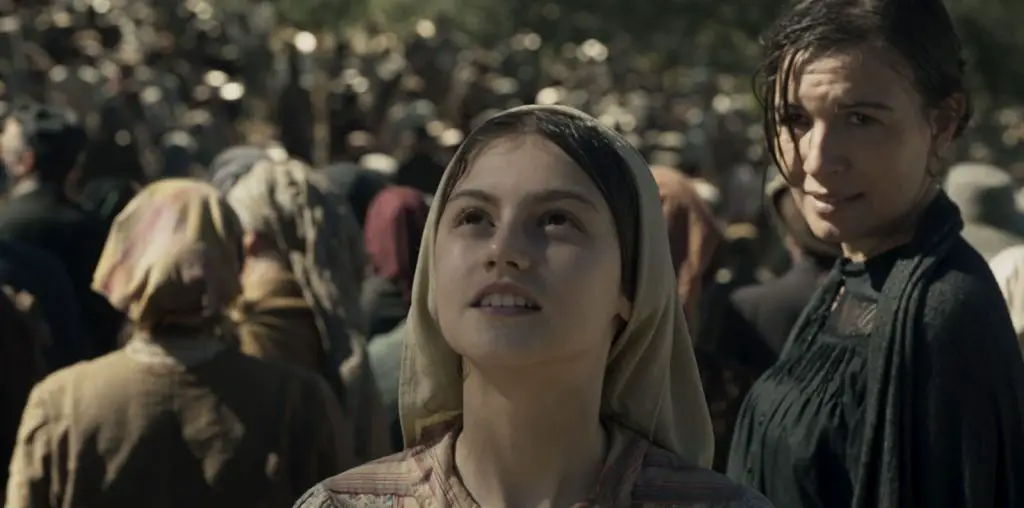
Martin Eden, writer-director Pietro Marcello’s sophomore narrative feature, is an Italian adaptation of Jack London’s 1909 novel of the same name. It follows the titular character (Luca Marinelli) as he goes from a poor but good-hearted young sailor to a jaded middle-aged star writer with a grudge against everyone and everything around him. In this time, he falls in and out of love with Elena Orsini (Jessica Cressy), the daughter of an aristocratic family. He befriends Russ Brissenden (Carlo Cecchi), an old leftist poet. Containing powerfully emotive scenes, Martin Eden struggles to connect these scenes coherently, diluting an otherwise strong narrative.
The film quickly introduces its unique style and its central characters in the first few scenes. From there, the narrative rapidly escalates, as the movie frequently and inconsistently skipped through time. This made Martin Eden seem more like a biopic, where certain famous moments in a person’s career and life are shown, but many important moments of emotional growth tend to be sidelined. Similarly, as the time jumps continue, and more scenes highlighting the main character’s arc are left out, I found it difficult to grasp how much time had elapsed. This all led to a lot of otherwise interesting scenes being stripped of their emotional significance. This is a shame because the performances delivered by Marinelli and Cressy were powerfully emotive. While perhaps a little too esoteric, the scenes showcased interesting and engaging dialogue.
However, the visual language of Martin Eden alleviates the timeline issues to an extent. Notably, the decision to shoot on film, using archival footage of Italian people and streets, and the commitment to handheld imagery. The cinematography was certainly a highlight, with director of photography Francesco Di Giacomo delivering a true treat for the eyes, save for a few continuity issues. Those issues were mainly a lack of consistency, in which shots in a scene didn’t always cut together smoothly.

“…[Martin Eden] goes from a poor but good-hearted young sailor to a jaded middle-aged star writer with a grudge against everyone and everything around him.”
The story’s ideological exploration was its most fascinating aspect. Eden was an individualist who was openly critical of both socialism and liberalism (the economic term, not the same as how it is currently used in the U.S.). He saw the socialists as woefully utopian and destined to bring dystopia and the liberals as hypocrites who say they are for a free market but enact regulation and other socialist ideas that prove the free market is imperfect. Having made enemies of those around him and believing that they are all liars and cheats made him extremely lonely and depressed.
Even when he got the fame and respect he desired, he couldn’t enjoy it. Jack London was a socialist and wanted to critique individualism through the character. Still, by having the reader follow a successful Eden, London allowed for individualism’s glorification. By following London’s original text so closely, Marcello falls into the same narrative trap. It is not clear whether Eden is supposed to be a villain, anti-hero, or hero, and because of that ambiguity, the point of the whole story remains obfuscated.
Martin Eden is a great film in many aspects, but it suffers from a lack of clear direction, leading to its many excellent pieces never quite fitting together. Despite that, as a love letter to Italy’s past and a unique historical drama, Martin Eden does have something to offer audiences.

"…a love letter to Italy’s past and a unique historical drama..."


